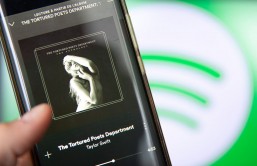Drinking even one cup of coffee in the late afternoon or evening can have lasting effects into the night and reduce the amount of sleep you get by more than one hour, results from a new study on caffeine consumption suggest.
Published in the the Nov. 15 issue of the Journal of Clinical Sleep Medicine, which is published by the American Academy of Sleep Medicine, the latest research reveals that 400 mg of caffeine (about 2-3 cups of coffee) can have a significant effect on how much sleep a person gets, even if they consume caffeine six hours prior to bedtime. Some participants in the study were even subjectively unaware that their sleep had been affected by a late-day dose coffee.
"Sleep specialists have always suspected that caffeine can disrupt sleep long after it is consumed," American Academy of Sleep Medicine President M. Safwan Badr, MD said in a press release. "This study provides objective evidence supporting the general recommendation that avoiding caffeine in the late afternoon and at night is beneficial for sleep."
Christopher Drake, PhD, investigator at the Henry Ford Sleep Disorders and Research Center and associate professor of psychiatry and behavioral neurosciences at Wayne State University in Detroit, Mich., lead the study on 12 people who were determined normal and healthy sleepers after a physical exam and clinical interview. The participants were told to maintain their normal sleep schedules and given three pills a day for four days. They were instructed to take one pill at six hours before bedtime, one at three prior and one right before they got into bed.
Two of the pills were placebos, while one contained 400 mg of caffeine, and on one of the four days, all three pills were placebos. Sleep diaries were used by the participants to subjectively measure their sleep experiences, while an in-home sleep monitor gave an objective look at how the caffeine had affected their sleep.
"Drinking a big cup of coffee on the way home from work can lead to negative effects on sleep just as if someone were to consume caffeine closer to bedtime," Drake, who also is on the board of directors of the Sleep Research Society, said in a press release. "People tend to be less likely to detect the disruptive effects of caffeine on sleep when taken in the afternoon."
The researchers advise coffee fans not to consume caffeine before 5 p.m.








